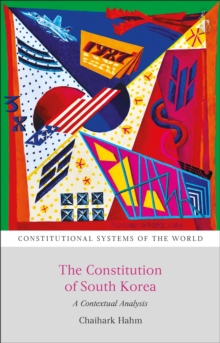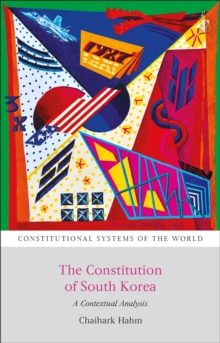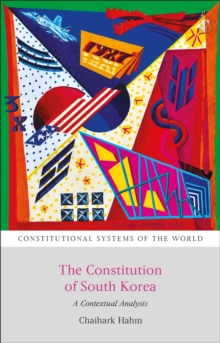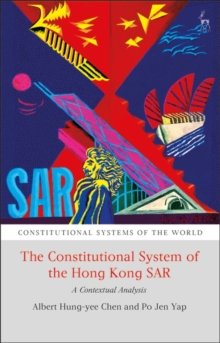
The Constitution of Myanmar : A Contextual Analysis PDF
by Dr Melissa Crouch
Part of the Constitutional Systems of the World series
Description
This timely and accessible book is the first to provide a thorough analysis of the 2008 Constitution of Myanmar (Burma) in its historical, political and social context.
The book identifies and articulates the principles of the Constitution through an in-depth analysis of legal and political processes and practises, particularly since the 1990s.
The core argument of this book is that the 2008 Constitution is crucial to the establishment and maintenance of the military-state.
The military-state promotes the leadership role of the military in governance based on a set of ideological commitments and a centralised form of organisation based on the concept of the Union.
The book develops this argument by demonstrating how the process of constitution-making and the substance of the 2008 Constitution contribute to its lack of credibility and fuel demands for reform.
The vision offered by the 2008 Constitution and its associated institutions has been the subject of fierce contestation, not least, for example, due to concerns over the militarisation of the state.
This book is animated by debates over fundamental ideas such as the nature of democracy, the possibility of peace and federalism, the relationship between the executive and the legislature, relations between the Union government and sub-national governments, debates over judicial independence and the oversized role of the Tatmadaw (armed forces).
Central to the future of the Constitution and the military-state is the role of the Tatmadaw, which will be a key determinant in any potential shift from the present highly centralised, partly-democratic Union to a federal or decentralised democratic system of governance.
Information
-
Download - Immediately Available
- Format:PDF
- Pages:240 pages
- Publisher:Bloomsbury Publishing PLC
- Publication Date:05/09/2019
- Category:
- ISBN:9781509927371
Other Formats
- EPUB from £18.62
- Paperback / softback from £22.99
Information
-
Download - Immediately Available
- Format:PDF
- Pages:240 pages
- Publisher:Bloomsbury Publishing PLC
- Publication Date:05/09/2019
- Category:
- ISBN:9781509927371










